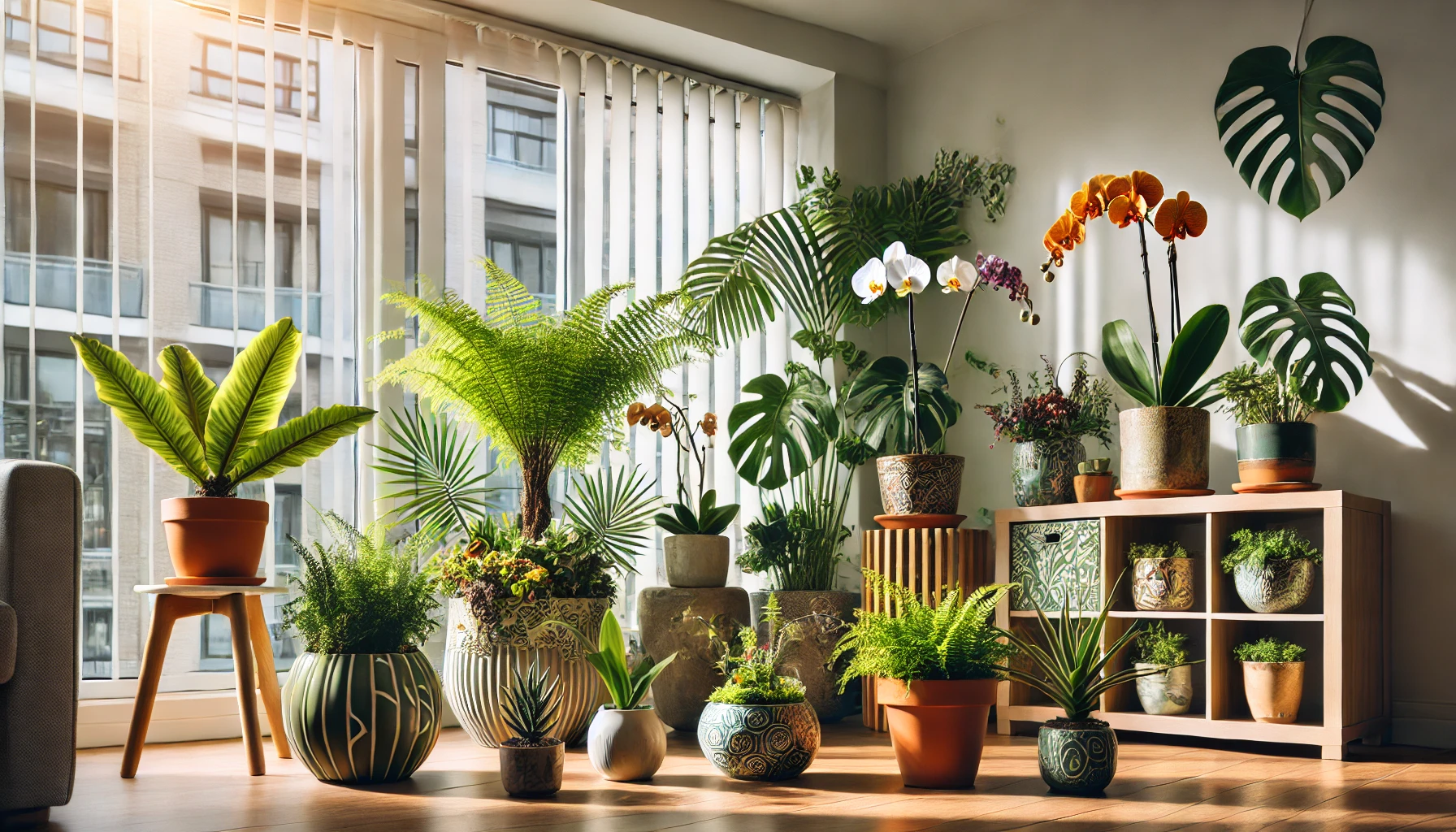Exotic plants bring a unique charm and vibrant touch to any home, especially when living in small apartments where space is limited. However, taking care of these plants can be tricky, especially when it comes to pest control. Pests can thrive in environments with the right temperature, humidity, and light, which are often found in indoor spaces. Fortunately, with the right knowledge and care, you can keep your exotic plants healthy and pest-free.
Understanding the Risks: Why Do Pests Love Exotic Plants?
Exotic plants often have specific needs in terms of light, humidity, and temperature, which can create an ideal environment for pests. These pests are attracted to plants that are stressed or weakened due to improper care, making them more vulnerable to infestations. Common pests that target indoor plants include aphids, spider mites, scale insects, mealybugs, and whiteflies. These pests can damage the plant’s leaves, stems, and roots, leading to stunted growth or even plant death if not managed.
Regular Inspection: Early Detection is Key
One of the most effective ways to prevent pest infestations in your exotic plants is by regularly inspecting them. Early detection can make a significant difference in preventing a small issue from becoming a major problem. When inspecting your plants, look for:
- Yellowing or discolored leaves
- Sticky residues on the leaves or stems (a sign of aphid or mealybug infestation)
- Webbing between the leaves (often associated with spider mites)
- Tiny holes or chewed edges on the leaves
If you notice any of these signs, take immediate action to prevent the pests from spreading.
Keep Your Plants Healthy and Strong
Pests are more likely to attack plants that are stressed or unhealthy. To avoid attracting pests, make sure you are providing the best care for your exotic plants. Ensure they are getting the right amount of light, water, and nutrients. Follow these general tips to maintain plant health:
- Proper Watering: Overwatering or underwatering can stress the plant, making it more susceptible to pests. Use well-draining pots and allow the soil to dry slightly between waterings.
- Correct Lighting: Make sure your exotic plants are placed in areas where they can get the appropriate amount of light. Too much direct sunlight can scorch their leaves, while too little light can weaken them, making them more attractive to pests.
- Humidity Control: Many exotic plants thrive in humid environments, but excessive humidity can also create favorable conditions for pests like mold and fungi. Use a humidity tray or a small humidifier to regulate the moisture level around your plants.
Natural Pest Control: Safe and Effective Solutions
If pests do appear, there are several natural methods you can use to eliminate them without resorting to harsh chemicals, which can be harmful to both your plants and the indoor environment.
1. Neem Oil Spray
Neem oil is a natural insecticide that can be used to treat a wide range of pests. It disrupts the feeding and reproductive cycles of insects, preventing them from causing further damage to your plants. Simply mix a few tablespoons of neem oil with water and spray it directly onto the affected areas of the plant. Be sure to apply it in the early morning or evening to avoid burning the plant under direct sunlight.
2. Insecticidal Soap
Insecticidal soap is another effective way to control pests like aphids, mealybugs, and spider mites. It works by suffocating the insects without harming the plant. Spray the soap solution onto the leaves and stems, making sure to cover both the tops and bottoms of the leaves where pests like to hide.
3. Diatomaceous Earth
Diatomaceous earth is a fine powder made from the fossilized remains of marine organisms. It is harmless to humans and pets but deadly to insects. When sprinkled around the base of your plants, diatomaceous earth dehydrates and kills pests like ants, fleas, and beetles. Be sure to use food-grade diatomaceous earth for safety.
4. Introduce Beneficial Insects
If you’re dealing with a persistent pest problem, introducing beneficial insects like ladybugs or predatory mites can help control the infestation. These insects feed on pests like aphids and spider mites, helping to maintain a natural balance in your indoor garden.
Maintaining Cleanliness Around Your Plants
Pests often enter through dirt, debris, or old leaves. Keeping the area around your plants clean can help prevent infestations. Here are a few cleaning tips:
- Regularly remove dead leaves and spent flowers from the soil surface to prevent pests from finding hiding spots.
- Wipe the leaves of your plants with a damp cloth to remove dust and any potential eggs that might have been laid by pests.
- Clean the floor around your plants and ensure that there are no plant cuttings or fallen leaves that could harbor insects.
Proper Potting and Soil Care
The soil in your pots can also harbor pests, so it’s essential to take proper care when choosing your potting mix. Use a well-draining soil mix designed for your specific plant type, as the wrong type of soil can attract pests. Avoid reusing old soil, as it may contain pest larvae or eggs. Instead, refresh your soil by replacing it with fresh, sterile soil when repotting your plants.
Conclusion: Prevention is the Best Solution
Preventing pests in your exotic plants is easier than dealing with a full-blown infestation. By maintaining a clean and healthy environment for your plants, performing regular inspections, and using natural pest control methods, you can keep your indoor garden thriving without the need for chemical pesticides. Remember, the best defense against pests is a strong, healthy plant that is well-cared for.
